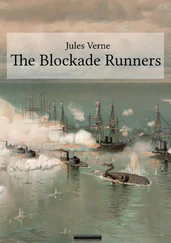“That’s to say false in speech and false in action,” said Paganel, after he had translated this beautiful figure of the Patagonian language.
“And can we deliver our friend?” he added.
“You may if he is still in the hands of the Indians.”
“And when did you last hear of him?”
“A long while ago; the sun has brought two summers since then to the Pampas.”
The joy of Glenarvan can not be described. This reply agreed perfectly with the date of the document. But one question still remained for him to put to Thalcave.
“You spoke of a prisoner,” he said; “but were there not three?”
“I don’t know,” said Thalcave.
“And you know nothing of his present situation?”
“Nothing.”
This ended the conversation. It was quite possible that the three men had become separated long ago; but still this much was certain, that the Indians had spoken of a European that was in their power; and the date of the captivity, and even the descriptive phrase about the captive, evidently pointed to Harry Grant.
CHAPTER XVII A SERIOUS NECESSITY
Table of Contents
THE Argentine Pampas extend from the thirty-fourth to the fortieth degree of southern latitude. The word PAMPA, of Araucanian origin, signifies grass plain , and justly applies to the whole region. The mimosas growing on the western part, and the substantial herbage on the eastern, give those plains a peculiar appearance. The soil is composed of sand and red or yellow clay, and this is covered by a layer of earth, in which the vegetation takes root. The geologist would find rich treasures in the tertiary strata here, for it is full of antediluvian remains—enormous bones, which the Indians attribute to some gigantic race that lived in a past age.
The horses went on at a good pace through the thick PAJA-BRAVA, the grass of the Pampas, par excellence , so high and thick that the Indians find shelter in it from storms. At certain distances, but increasingly seldom, there were wet, marshy spots, almost entirely under water, where the willows grew, and a plant called the Gygnerium argenteum . Here the horses drank their fill greedily, as if bent on quenching their thirst for past, present and future. Thalcave went first to beat the bushes and frighten away the cholinas, a most dangerous species of viper, the bite of which kills an ox in less than an hour.
For two days they plodded steadily across this arid and deserted plain. The dry heat became severe. There were not only no RIOS, but even the ponds dug out by the Indians were dried up. As the drought seemed to increase with every mile, Paganel asked Thalcave when he expected to come to water.
“At Lake Salinas,” replied the Indian.
“And when shall we get there?”
“Tomorrow evening.”
When the Argentines travel in the Pampas they generally dig wells, and find water a few feet below the surface. But the travelers could not fall back on this resource, not having the necessary implements. They were therefore obliged to husband the small provision of water they had still left, and deal it out in rations, so that if no one had enough to satisfy his thirst no one felt it too painful.
They halted at evening after a course of thirty miles and eagerly looked forward to a good night’s rest to compensate for the fatigue of day. But their slumbers were invaded by a swarm of mosquitoes, which allowed them no peace. Their presence indicated a change of wind which shifted to the north. A south or southwest wind generally puts to flight these little pests.
Even these petty ills of life could not ruffle the Major’s equanimity; but Paganel, on the contrary, was perfectly exasperated by such trifling annoyances. He abused the poor mosquitoes desperately, and deplored the lack of some acid lotion which would have eased the pain of their stings. The Major did his best to console him by reminding him of the fact that they had only to do with one species of insect, among the 300,000 naturalists reckon. He would listen to nothing, and got up in a very bad temper.
He was quite willing to start at daybreak, however, for they had to get to Lake Salinas before sundown. The horses were tired out and dying for water, and though their riders had stinted themselves for their sakes, still their ration was very insufficient. The drought was constantly increasing, and the heat none the less for the wind being north, this wind being the simoom of the Pampas.
There was a brief interruption this day to the monotony of the journey. Mulrady, who was in front of the others, rode hastily back to report the approach of a troop of Indians. The news was received with very different feelings by Glenarvan and Thalcave. The Scotchman was glad of the chance of gleaning some information about his shipwrecked countryman, while the Patagonian hardly cared to encounter the nomadic Indians of the prairie, knowing their bandit propensities. He rather sought to avoid them, and gave orders to his party to have their arms in readiness for any trouble.
Presently the nomads came in sight, and the Patagonian was reassured at finding they were only ten in number. They came within a hundred yards of them, and stopped. This was near enough to observe them distinctly. They were fine specimens of the native races, which had been almost entirely swept away in 1833 by General Rosas, tall in stature, with arched forehead and olive complexion. They were dressed in guanaco skins, and carried lances twenty feet long, knives, slings, bolas, and lassos, and, by their dexterity in the management of their horses, showed themselves to be accomplished riders.
They appeared to have stopped for the purpose of holding a council with each other, for they shouted and gesticulated at a great rate. Glenarvan determined to go up to them; but he had no sooner moved forward than the whole band wheeled round, and disappeared with incredible speed. It would have been useless for the travelers to attempt to overtake them with such wornout horses.
“The cowards!” exclaimed Paganel.
“They scampered off too quick for honest folks,” said McNabbs.
“Who are these Indians, Thalcave?” asked Paganel.
“Gauchos.”
“The Gauchos!” cried Paganel; and, turning to his companions, he added, “we need not have been so much on our guard; there was nothing to fear.”
“How is that?” asked McNabbs.
“Because the Gauchos are inoffensive peasants.”
“You believe that, Paganel?”
“Certainly I do. They took us for robbers, and fled in terror.”
“I rather think they did not dare to attack us,” replied Glenarvan, much vexed at not being able to enter into some sort of communication with those Indians, whatever they were.
“That’s my opinion too,” said the Major, “for if I am not mistaken, instead of being harmless, the Gauchos are formidable out-and-out bandits.”
“The idea!” exclaimed Paganel.
And forthwith commenced a lively discussion of this ethnological thesis— so lively that the Major became excited, and, quite contrary to his usual suavity, said bluntly:
“I believe you are wrong, Paganel.”
“Wrong?” replied Paganel.
“Yes. Thalcave took them for robbers, and he knows what he is talking about.”
“Well, Thalcave was mistaken this time,” retorted Paganel, somewhat sharply. “The Gauchos are agriculturists and shepherds, and nothing else, as I have stated in a pamphlet on the natives of the Pampas, written by me, which has attracted some notice.”
V. IV Verne
[illustration omitted] [page intentionally blank]
“Well, well, you have committed an error, that’s all, Monsieur Paganel.”
“What, Monsieur McNabbs! you tell me I have committed an error?”
Читать дальше












